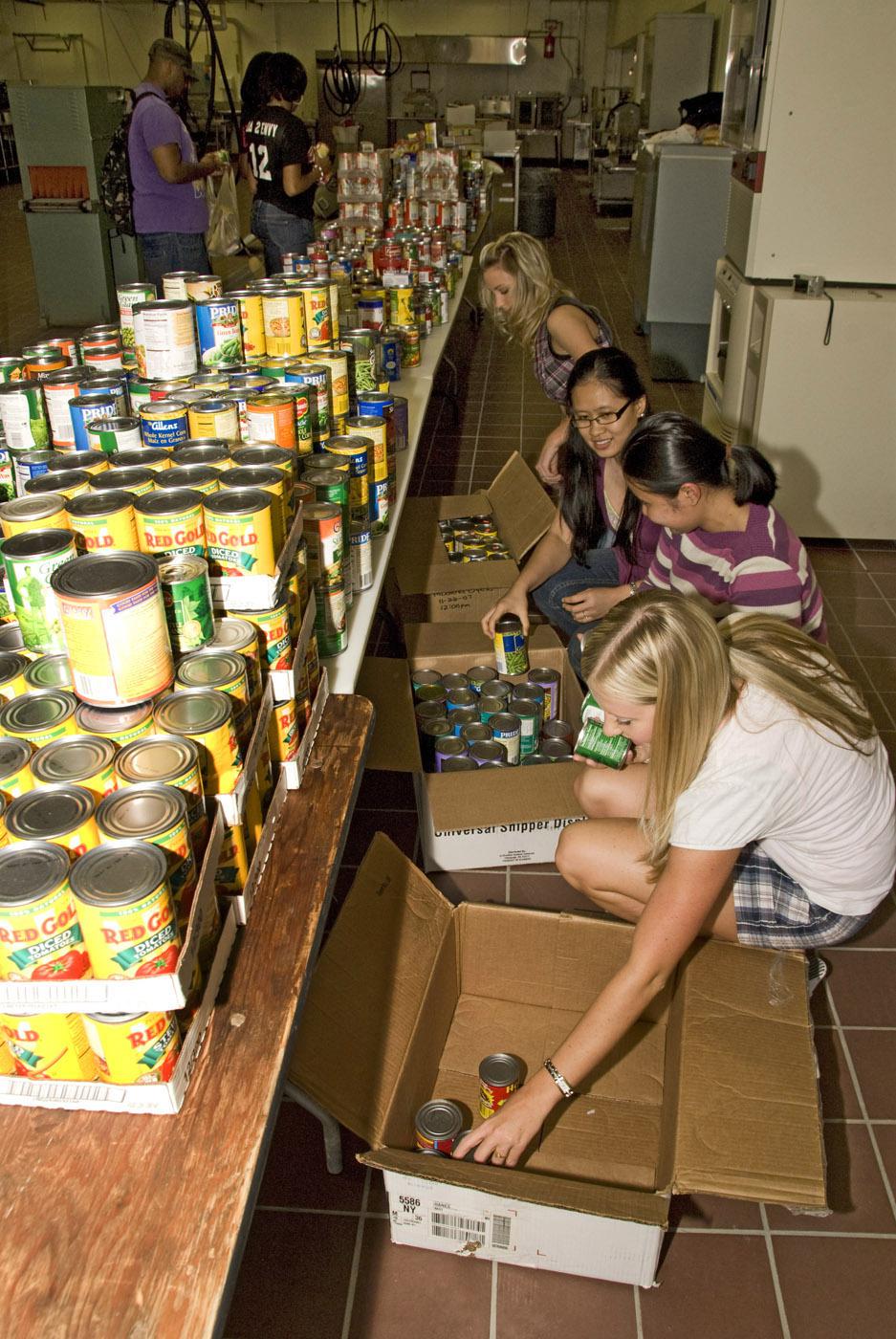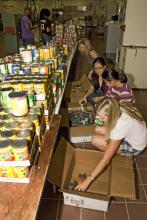Information Possibly Outdated
The information presented on this page was originally released on May 1, 2008. It may not be outdated, but please search our site for more current information. If you plan to quote or reference this information in a publication, please check with the Extension specialist or author before proceeding.
MSU student drive nets 1,500 pounds of food
By Patti Drapala
MSU Ag Communications
MISSISSIPPI STATE -- Mississippi State University students collected more than 1,500 pounds of canned goods in their War on Hunger food drive at semester's-end to help stock local pantries in the Mississippi Food Network.
The Committee of 19 campus organization sponsored the food drive, held the last week of April. Although many students had to study for final examinations, they honored their commitment to make a difference, said Chiquita Briley, committee faculty adviser and MSU Extension Service nutrition specialist.
“One fraternity donated more than 700 cans, and other student organizations collected significant amounts of food,” she said. “Many faculty members made an effort to motivate students to participate.”
The cans are being distributed among seven food pantries in Oktibbeha, Clay and Lowndes counties. In keeping with the request for a variety of foods rich in nutrients, student volunteers sorted soups, canned tuna and chicken, beef stews, pineapple chunks and green beans brought to the Hearnsburger Food Processing Plant on campus.
“The food pantries I contacted were excited to know they were receiving good food choices from the collection,” Briley said.
The committee partnered with the Mississippi Food Network, the Society of St. Andrew's and Students Team Up to Fight Hunger to conduct the drive. The donations will help pantries maintain their stocks that often are depleted in summer when more people seek assistance.
“When school is out, families on limited incomes must deal with the issue of providing three nutritious meals a day for their children,” Briley said. “If they cannot afford foods that are nutrient-dense, it impacts the health and well-being of the entire family."
Food banks in Mississippi depend upon assistance from the Mississippi Food Network and America's Second Harvest, the national food network. According to statistics from http://www.secondharvest.org, more than 228,000 children under 18 and 57,000 adults over 65 live in poverty in Mississippi.
“Most of the clients who come to food pantries that we supply are working people not making enough money to pay their bills and feed their families,” said Marilyn Blackledge, Mississippi Food Network's director of development. “At the end of the month, they run out of food and must go to the pantries for help.”
Food pantries issue monthly reports to the Mississippi Food Network on the number of people who come for food. From January through March this year, Oktibbeha County food pantries served 2,755 people; Clay, 163; and Lowndes, 2,972.
Blackledge said more than 613,000 people in Mississippi don't have access to the food necessary to maintain a healthy lifestyle. The problem, which is called food insecurity, is an issue that Mississippi must address, she said.
“If you consider the population of Oktibbeha, Clay and Lowndes counties and continue in a line northeast to Lee County, the number of people who face food insecurity every day is at least 24,000,” Blackledge said.
Dan Kahn, founder of Students Team Up to Fight Hunger, a national network of students helping food pantries, said he was thrilled with MSU's effort.
“It's amazing to have this great result the first time,” said Kahn, an attorney in New York City. “It is difficult for students to get a food drive up and running, so MSU administrators should be proud of what their students have done.”
Committee leader Elisabeth Brooks, a junior nutrition major from Leakesville, said she hopes MSU's work can influence the other seven institutions of higher learning to conduct food drives for pantries in their area of the state.
“Students want to help the community,” she said. “There are many people who are suffering from food insecurity and need our help.”




